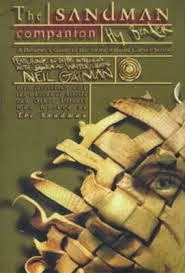Please bear with some autobiography. I will explain its relevance.
In 1988-'89, I retrained as a Careers Officer, then worked continuously from 1989 until retirement in 2012, although job title, job description and nature of employing organization changed more than once as governments responded to rapid socioeconomic changes.
One of our trainers told us a true story and cautionary tale. A client had said, "I want to start a pop group and make a record and I want it to go to No 1 in the charts." Her Careers Officer replied, "You have no chance." She did it. One of my fellow trainees recognized the name of the group. That Careers Officer then told that story as a warning to others. Never let it be said that we do not learn.
I never told anyone that they could not do anything. When a guy said that he wanted to be a musician, I:
asked him about his existing involvement with music, if any;
provided printed careers information on "Musician";
highlighted the requirements of the job;
pointed out that music can remain a leisure interest and activity even if it never becomes a source of income;
strongly advised the formulation of a Career Plan B and discussed what that might be (all advice was written and recorded; I could never be accused later of telling someone that he could (or could not) be a musician).
Despite this, I discovered that, without my knowledge at the time, I had been criticized for not telling a pupil that he could not be a musician, even though this was in a school where a teacher had been told by one of her teachers that she could not teach because she was Dyslexic and had set out, successfully, to prove him wrong.
The relevance of this to Neil Gaiman:
"'When the [careers] advisor asked me what I wanted to do, I didn't hesitate, because I'd been waiting to tell the appropriate person for years,' says Gaiman. 'So I answered, "I want to write American comic books." And what I wanted him to say was, "Okay, that is a commendable ambition. You should go to the School of Visual Arts in New York, and you should work on your craft, and these are the people with whom you should talk to get you on your way."
"'Instead, he just replied, "Oh, you can't do that. Have you ever considered accountancy?"'"
- Hy Bender, The Sandman Companion (London, 1999), p. 13.
I could not believe that! That advisor needed to:
ask Gaiman about his writing abilities;
advise him to try every kind of fiction publishing;
ask him how much he already knew about American comics publishers;
promise to get him more information about them;
not mention accountancy.
One of my clients said that he wanted to draw American comics. I asked, "Will you be the next John Byrne?" He was puzzled, not because he did not know the name "John Byrne" but because he did not expect it in that context. We soon established that I had Byrne's Man Of Steel miniseries in the monthly comics whereas he had had to buy the collected edition. When I met him in a comics shop a few years later, he was by then attending Art College.

No comments:
Post a Comment